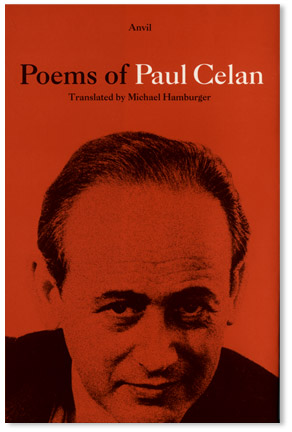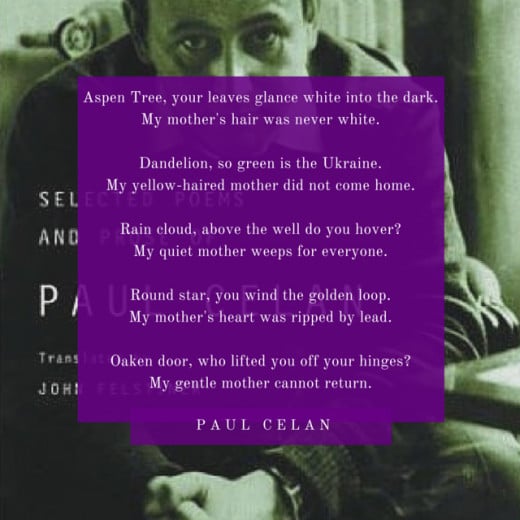
The Soviet occupation of Bukovina in June 1940 deprived Celan of any lingering illusions about Stalinism and Soviet Communism stemming from his earlier socialist engagements the Soviets quickly imposed bureaucratic reforms on the university where he was studying Romance philology and deportations to Siberia started. His journey to France took him through Berlin as the events of Kristallnacht unfolded, and also introduced him to his uncle, Bruno Schrager, who later was among the French detainees who died at Birkenau. But he returned to Cernăuţi in 1939 to study literature and Romance languages.

The Anschluss precluded Vienna, and Romanian schools were harder to get in to due to the newly-imposed Jewish quota. In 1938, Celan travelled to Tours, France, to study medicine. Paul graduated from the gymnasium/high school called Liceul Marele Voivod Mihai (Great Voivode Mihai High School) in 1938. His earliest known poem, titled Mother's Day 1938 was an earnest, if sentimental, profession of love. After his Bar Mitzvah in 1933, Celan abandoned Zionism (at least to some extent) and finished his formal Hebrew education, instead becoming active in Jewish Socialist organizations and fostering support for the Republican cause in the Spanish Civil War.

His mother, Fritzi, was an avid reader of German literature who insisted German be the language of the house.

His father, Leo Antschel, was a Zionist who advocated his son's education in Hebrew at Safah Ivriah, an institution previously convinced of the wisdom of assimilation into Austrian culture, and one which favourably received Chaim Weizmann of the World Zionist Organization in 1927. He was born as Paul Antschel into a Jewish family in Romania, and changed his name to "Paul Celan" (where Celan in Romanian would be pronounced Chelan, and was derived from Ancel, pronounced Antshel), becoming one of the major German-language poets of the post-World War II era.Ĭelan was born in 1920 into a German-speaking Jewish family in Cernăuţi, Northern Bukovina, a region then part of Romania and earlier part of the Austro-Hungarian Empire, among others (now part of Ukraine). (born Cernăuţi, Bukovina, Kingdom of Romania, current Chernivtsi, Ukraine - c.


 0 kommentar(er)
0 kommentar(er)
